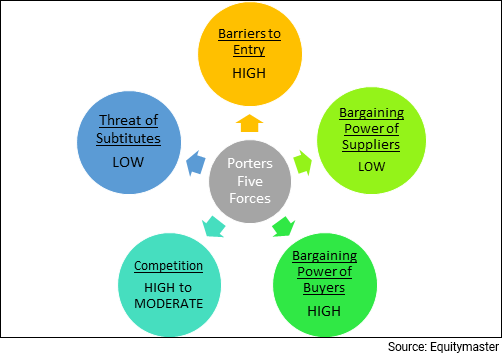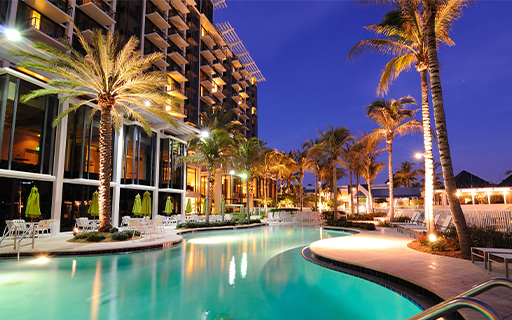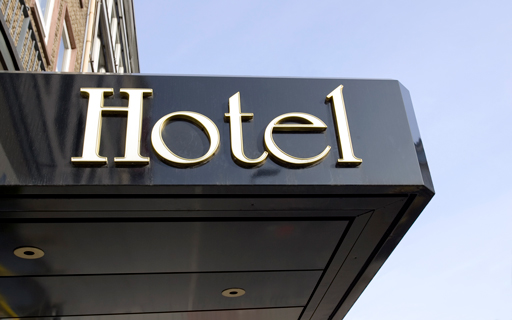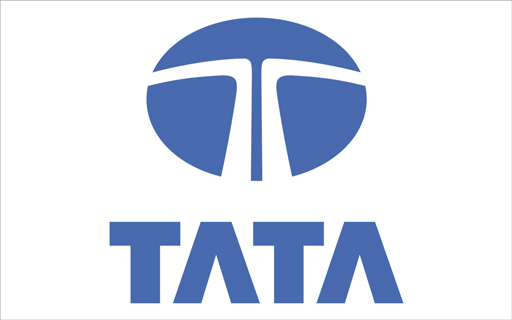India's Third Giant Leap
This Could be One of the Biggest Opportunities for Investors
- Home
- Outlook Arena
- Best Hotel Stocks in India
Best Hotel Stocks in India

The hotel industry in India has emerged as the eminent sector propelling the Indian economy.
This comes on the back of the transformation in the industry over the decades. The industry has moved in line with the changing behaviour of customers.
Apart from this, the inclusion of newer technologies such as online booking systems and digital payments and demand for heritage & boutique hotels has also helped.
The hotel industry is closely linked to the travel and tourism industry.
As per the India Brand Equity Foundation (IBEF), the travel market in India is projected to reach US$ 125 billion by FY27 from an estimated US$ 75 billion in FY20.
Porter's Five Forces Analysis of the Hotel Sector in India
Porter's Five Forces is a model that identifies and analyzes five competitive forces that shape every industry.
These are barriers to entry, bargaining power of suppliers, bargaining power of customers, threat of substitutes and competition within the industry.
A change in any of the forces normally requires a company to re-assess the marketplace.
Let us have a look at how these five forces shape the hotel sector:
#1 Barriers to Entry
The most attractive segment is one in which barriers to entry are high as they restrict the threat of new entrants.
Conversely if the barriers are low, the risk of new companies venturing into a given market is high.
In the hotel sector, barriers to entry are high. These are primarily led by high capital costs, intense competition in the industry, poor infrastructure facilities and scarcity of land.
#2 Bargaining Power of Suppliers
The bargaining power of suppliers is the ability of suppliers to put the firm under pressure. Suppliers may refuse to work with the firm or charge excessively high prices for unique resources.
The bargaining power of suppliers in the hotel sector is limited due to higher competition, especially in metros.
#3 Bargaining Power of Customers
The bargaining power of customers is the ability of customers to put the firm under pressure. It is high if buyers have many alternatives and low if they have few choices.
In the hotel sector, the bargaining power of customers is high in metros due to increased room supply.
#4 Competition
For most industries, having an understanding of the competition is vital to successfully marketing or selling a product.
The competition in the hotel industry has intensified due to the entry of foreign hotel chains. It is higher in the metros and is slowly picking up in tier-2 and tier-3 cities.
#5 Threat of Substitutes
A substitute product uses a different technology to try to solve the same economic need.
The threat of substitutes was low in the hotel industry. But now, with the advent of apartment and home rentals websites like Airbnb, it is moderately high.
Porters Five Forces Analysis of the Hotel Sector in India

When to Invest in Hotel Stocks
The hotel industry is highly cyclical and linked to economic growth. This means that if and when for some reason, the economy flounders, so will the hotel stocks.
The demand and supply of hotel rooms can affect the viability of a hotel in any part of the world. This is mainly because unlike commodities or fast-moving consumer goods that can move around for consumption, the demand for a hotel is a function of its location.
As Ellsworth Statler, father of the modern hotel industry has said, ''There are three things that make a hotel famous - location, location, location.''
Therefore, the decision to invest in the sector is based on a combination of both;
- a top-down approach (starting from a macroeconomic perspective) and
- a bottom-up approach (focusing on company and stock-specific fundamentals and valuations).
Key Points to Keep in Mind While Investing in Hotel Stocks
Here are some key points to take note of before you invest in hotel stocks:
#1 Cyclicality of the sector
This is the most important factor one must keep in mind while investing in hotel stocks.
Since economic cycles affect the earnings prospects of hotel stocks, the best time to buy them is at the start of an economic expansion. The best time to sell them is just before the economy begins to slow down.
Investing in a hotel stock at the peak of an economic cycle could result in a huge chunk of the investment being wiped it. Nevertheless, identifying the bottom of the cycle is not an easy task.
#2 Business mix
A hotel chain should not be leveraged on any specific segment i.e., luxury, leisure or business. Though demand elasticity is lower at the premium end, when the tourist flow falls, this player could be the worst hit.
Moreover, look for hotels with a well-diversified location mix as well. Diversification smoothens the earnings, effectively boosting returns.
Therefore, before you compare the performance of two hotel companies, say for instance, Indian Hotels vs Lemon Tree Hotels, do factor in their segment and location mix.
#3 Profitability of the company
Hotel companies can generate revenues by two methods:
Setting up a hotel which involves huge capital outlays for management expertise, and management contracts.
While the first method is prevalent, the latter is gaining traction owing to its capital-light model.
Under a hotel management contract, the hotel owner appoints a management company to operate the business on the owner's behalf. Some management companies are also brand owners, in which case, the hotel operates under the management company's brand.
The owner remains the owner of the real estate and the business. While the owner retains the majority of the risk and reward from the operation, he pays a fee to the management company, which is responsible for the day-to-day management of the hotel.
Such management contracts bode well for established hotel companies such as Indian Hotels and EIH. It allows a capital-intensive business to pursue capital-light growth, bolstering revenues and profitability. So, a company with a mix leaning towards management contracts will generate higher profits.
Before you compare the performance of two hotel companies, say for instance, Indian Hotels and Mahindra Resorts, do factor in the operating performance.
Here's a list of top hotel companies in India based on their consolidated operating profit.
| Company | Net Sales (Rs m) | Operating Profit (Rs m) |
|---|---|---|
| The Indian Hotels Company Ltd. | 30,562 | 5,599 |
| Mahindra Holidays & Resorts India Ltd. | 20,133 | 4,859 |
| EIH Ltd. | 9,852 | 574 |
| Chalet Hotels Ltd. | 5,078 | 1,204 |
| Lemon Tree Hotels Ltd. | 4,022 | 1,396 |
| India Tourism Development Corporation Ltd. | 2,893 | 130 |
| Taj GVK Hotels & Resorts Ltd. | 2,270 | 528 |
| Oriental Hotels Ltd. | 2,193 | 304 |
| Mac Charles (India) Ltd. | 219 | 1,021 |
Data as of March 2022
#4 Debt to equity (D/E) ratio
A company uses both equity and debt to run a business. However, the amount of debt it uses indicates its fixed obligations. Higher the leverage, higher will be the fixed charges such as interest expense which will lower the profitability.
Hotel companies operate in a capital-intensive industry, fuelled by borrowings. High borrowings can quickly eat into the erratic profit margins of a highly cyclical business.
Therefore, one must look for a debt-to-equity ratio of one or less than one.
Here's a list of top hotel companies in India with low debt to equity ratio.
| Company | Debt to Equity (x) |
|---|---|
| The Indian Hotels Company Ltd. | 0.12 |
| Mahindra Holidays & Resorts India Ltd. | 0 |
| EIH Ltd. | 0.12 |
| Lemon Tree Hotels Ltd. | 0.35 |
| India Tourism Development Corporation Ltd. | 0 |
| Taj GVK Hotels & Resorts Ltd. | 0.43 |
| Mac Charles (India) Ltd. | 0.43 |
Data as of March 2022
#6 Valuations
Two commonly used financial ratios used in the valuation of hotel stocks are -
Price to Earnings Ratio (P/E) - It compares the company's stock price with its earnings per share. The higher the P/E ratio, the more expensive the stock.
To find stocks with favorable P/E Ratios, check out our list of stocks according to their P/E Ratios.
Price to Book Value Ratio (P/BV) - It compares a firm's market capitalization to its book value. A high P/BV indicates markets believe the company's assets to be undervalued and vice versa.
To find stocks with favorable P/BV Ratios, check out our list of stocks according to their P/BV Ratios.
#7 Dividend yields
There is no consistent trend of dividends across the industry, with different companies having different dividend policies.
Capital intensive industries usually scores poorly on the dividend yield scale of measure. Hence most hotel stocks, except for Indian Hotels don't pay out dividends.
Here's a list of top hotel companies in India that score well on dividend yield and dividend pay-out.
| Company | Dividend Yield (eoy) | Dividend Payout (%) |
|---|---|---|
| The Indian Hotels Company Ltd. | 40 | 0.2 |
Data as of March 2022
For more details, check out the top stocks offering high dividend yields.
Top Hotel Stocks in India
The hotel sector is in its growth phase. The top hotel stocks in India can immensely benefit with so many factors positively affecting the industry.
Here are the top hotel stocks in India which score well on crucial parameters.
| Company | RoE (Latest, %) | D/E (Curr FY, x) | Sales CAGR (3 yrs, %) | Profit CAGR (3 yrs, %) |
|---|---|---|---|---|
| The Indian Hotels Company Ltd. | -0.56 | 0.12 | -12.2 | -196.8 |
| Mahindra Holidays & Resorts India Ltd. | 0 | 0 | -3.8 | 4.5 |
| EIH Ltd. | -4.12 | 0.12 | -18.2 | -170.7 |
| Chalet Hotels Ltd. | -4.55 | 1.81 | -19.9 | 114.4 |
| Lemon Tree Hotels Ltd. | -1.61 | 0.35 | -9.9 | -235.5 |
| India Tourism Development Corporation Ltd. | 2.24 | 0 | -7.3 | -43.1 |
| Taj GVK Hotels & Resorts Ltd. | 2.54 | 0.43 | -10.5 | -25.5 |
| Oriental Hotels Ltd. | -5.16 | 1.04 | 14.1 | -152.7 |
| Mac Charles (India) Ltd. | 32.03 | 0.43 | -10.6 | 87.4 |
List of Hotel Stocks in India
The details of listed hotel companies can be found on the NSE and BSE website. However, the overload of financial information on these websites can be overwhelming.
For a more direct and concise view of this information, you can check out our list of hotel stocks.
Best Sources for Information on the Hotel Sector
Indian Brand Equity Foundation Hotels Sector Report - https://www.ibef.org/research/case-study/growth-of-hotel-industry-in-india
So, there you go. Equitymaster's detailed guide on the top hotel stocks in India is simple and easy to understand. At the same time, it offers detailed analysis of both the sector and the top stocks in the sector.
You can also checkout our playlist on Hotel Stocks on Equitymaster's YouTube channel.
Here's a list of articles and videos on the hotel sector and top hotel stocks in India. This is a great starting point for anyone who is looking to explore more about hotel stocks and the hotel sector.
Disclaimer: This article is for information purposes only. It is not a stock recommendation and should not be treated as such. Learn more about our recommendation services here...
![]() Best Hotel Stock: Indian Hotels vs EIH
Best Hotel Stock: Indian Hotels vs EIH
Nov 16, 2024
The Indian hospitality industry is set to grow at a CAGR of 10.5% in the next three years, and this company could benefit the most.
![]() Ace Investor Vijay Kedia Checks into this Multibagger Hotel Stock. Will it be a Profitable Vacation?
Ace Investor Vijay Kedia Checks into this Multibagger Hotel Stock. Will it be a Profitable Vacation?
Apr 17, 2024
Here's why the seasoned investor added this hotel stock that has gained 100% in a year.
![]() Juniper Hotels IPO: 5 Things to Know
Juniper Hotels IPO: 5 Things to Know
Feb 17, 2024
From grey market premium to price band, here's everything you need to know about the upcoming IPO of this hotel company.
![]() This Undiscovered Smallcap Stock is Set to Benefit from the Ram Mandir Opening
This Undiscovered Smallcap Stock is Set to Benefit from the Ram Mandir Opening
Jan 10, 2024
Shares of the company have already shot up by 50% in the past five days.
![]() 'ITC-Like Stocks' to Beat Sensex 3x
'ITC-Like Stocks' to Beat Sensex 3x
Aug 11, 2023
Such stocks could potentially offer you as much as 3x the Sensex returns.
![]() ITC Share Price Falls as Investors Disappointed with Demerger Ratio
ITC Share Price Falls as Investors Disappointed with Demerger Ratio
Jul 25, 2023
What will happen after ITC hives off ITC Hotels? Continue reading to know more about the ITC Hotels demerger, share split ratio, and more.
![]() Hotel Stocks: High Expectations Meet Covid Hurdle
Hotel Stocks: High Expectations Meet Covid Hurdle
Jan 4, 2023
The stellar performance of the hotel stocks may be impacted by the recent spike of Covid-19 infections.
![]() Why Lemon Tree Hotels Share Price is Falling
Why Lemon Tree Hotels Share Price is Falling
Dec 20, 2022
After rallying for the better part of the year, this is why Lemon Tree Hotels has slipped in recent sessions.
![]() Why Indian Hotels Share Price is Falling
Why Indian Hotels Share Price is Falling
Nov 14, 2022
After a stellar performance in 2022, Indian Hotels shares hit a roadblock. Find out why.
![]() Hotel Stocks are Booming. Here are 5 You Should Track Closely...
Hotel Stocks are Booming. Here are 5 You Should Track Closely...
Sep 19, 2022
In the first quarter, most hotel companies reported improvement in revenues and profits.
![]() Why did Madhusudan Kela Exit this hotel Stock?
Why did Madhusudan Kela Exit this hotel Stock?
Jul 22, 2024
Here's why the seasoned investor trimmed his holding in this midcap hotel stock.
![]() IPO Bandwagon Gets Bigger with Oyo and Ola Set to Launch Biggest IPOs of 2024
IPO Bandwagon Gets Bigger with Oyo and Ola Set to Launch Biggest IPOs of 2024
Feb 21, 2024
Both these companies share contrasting tales on how far they've come to launching their initial public offers this year. Read on...
![]() Top Stocks to Benefit from Upcoming Ram Mandir Inauguration
Top Stocks to Benefit from Upcoming Ram Mandir Inauguration
Jan 20, 2024
How will the Ram Mandir inauguration impact specific stocks? Find out...
![]() Which Tata Group Stock Performed the Best in 2023? The Answer May Surprise You...
Which Tata Group Stock Performed the Best in 2023? The Answer May Surprise You...
Dec 20, 2023
Not Tata Technologies or Tata Elxsi, this little-known stock emerged as the star performer of 2023 among the 29 Tata group stocks.
![]() Do the 'ITC's of Your Portfolio Have Upside?
Do the 'ITC's of Your Portfolio Have Upside?
Jul 26, 2023
Such stocks could potentially offer you as much as 3x the Sensex returns.
![]() Fun Times Ahead For This Theme Park Operator
Fun Times Ahead For This Theme Park Operator
Mar 28, 2023
This Theme Park Operator is all set to capitalize on the next level of Consumer Spending.
![]() Covid 2023 - Who Could be the New Winners and Losers
Covid 2023 - Who Could be the New Winners and Losers
Dec 26, 2022
With Covid cases rising in China, stocks specific to covid are reacting both ways. Find out the biggest beneficiaries and the ones to get most affected.
![]() 5 Big Pandemic Ideas that Proved Dead Wrong
5 Big Pandemic Ideas that Proved Dead Wrong
Dec 15, 2022
The pandemic may have changed the world but it didn't change investing.
![]() Forget Titan. Focus on these Stocks to Play the Upcoming Wedding Season
Forget Titan. Focus on these Stocks to Play the Upcoming Wedding Season
Oct 18, 2022
The reasons why I believe investors should focus on stocks beyond Titan to play the wedding season.
![]() Why I'm Bullish on Hotel Stocks
Why I'm Bullish on Hotel Stocks
Nov 9, 2021
In this video, I'll show you why the time is right to trade hotel stocks.
FAQs
Which are the top hotels companies in India?
Based on marketcap, these are the top hotels companies in India:
You can see the full list of hotels stocks here.
Also check out our detailed note on the best hotel stocks in India.
Which are the top gainers and top losers within the hotel sector today?
Within the Hotels sector, the top gainers were SILVER PEARL HOSPITALITY & LUXURY SPACES LTD. (up 9.9%) and KAMAT HOTELS (up 6.7%). On the other hand, CKP LEISURE LTD. (down 100.0%) and PURPLE ENTERTAINMENT (down 12.0%) were among the top losers.
For more, please check out our hotel sector report.
How should you value hotels companies?
Investing in stocks requires careful analysis of financial data to find out a company's true worth. However, an easier way to find out about a company's performance is to look at its financial ratios.
Two commonly used financial ratios used in the valuation of stocks are -
Price to Earnings Ratio (P/E) - It compares the company's stock price with its earnings per share. The higher the P/E ratio, the more expensive the stock.
Price to Book Value Ratio (P/BV) - It compares a firm's market capitalization to its book value. A high P/BV indicates markets believe the company's assets to be undervalued and vice versa.





















